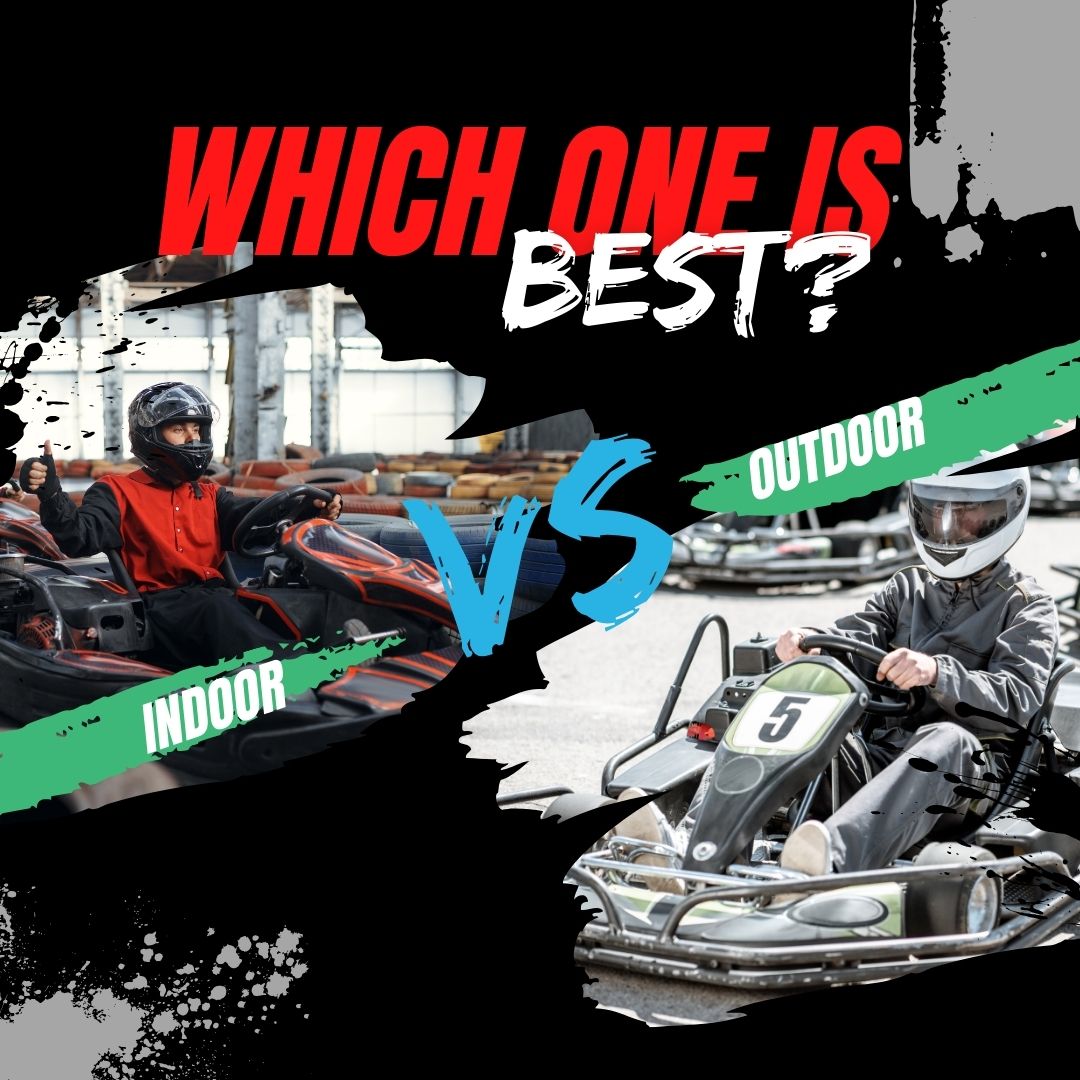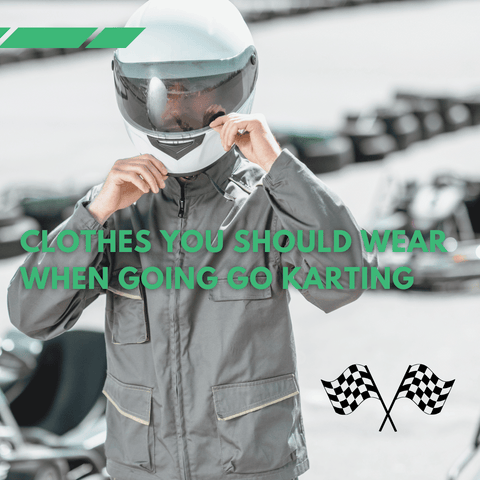
Updated: 28.4.25
Ready to put the pedal to the metal and dive into the world of go-karting?
Whether you're chasing your next adrenaline rush or just curious about the buzz, you've landed in the right spot.
In the ultimate face-off between indoor and outdoor go-karting, each offers unique thrills, challenges, and rewards. But how do you pick the one that’s right for you?
In this guide, we’ll speed through the twists and turns of both indoor and outdoor karting—covering everything from weather-proof tracks perfect for beginners to the wild, open circuits that fuel your need for speed.
Whether you're looking to sharpen your competitive edge or just have a blast on the weekends, understanding the differences will help you make the most of every race.
Buckle up — let’s race through the details!
Indoor Karting: Comfort, Consistency, Control
Indoor karting is the go-to choice for beginners and anyone craving consistency. No weather worries here — rain or shine, the race is on.
Indoor tracks are typically tighter and more technical, forcing drivers to master precision, cornering, and braking strategy. Every turn becomes a test of skill rather than sheer speed.
Plus, indoor facilities often use electric karts: fast, punchy, and eco-friendly, with no fumes and smooth power delivery that makes for a clean, exhilarating ride.
Bonus: no mud-splattered overalls to deal with afterward!
Outdoor Karting: Raw, Real Racing
Outdoor tracks offer the purest form of go-karting. Think longer straights, faster speeds, and the full unpredictability of the elements — wind, rain, and sun.
Outdoor karting feels closer to professional motorsport, with wide, flowing circuits built for overtaking and serious speed.
Sure, you’re at the mercy of Mother Nature — but that's all part of the adventure. And nothing beats the roar of a gas-powered kart tearing up an open track!
Indoor vs Outdoor: Equipment and Gear
Your gear can make or break your karting experience, and it often depends on whether you’re racing indoors or out:
- Helmets: Indoors? Focus on ventilation. Outdoors? Opt for UV protection and rain shields.
- Race Suits: Lightweight and breathable for indoor tracks; rugged, padded, and weather-resistant for outdoor conditions.
- Gloves: Indoors: flexibility and grip. Outdoors: extra abrasion resistance for rougher racing.
- Footwear: Good grip is essential, but outdoor racers might prefer water-resistant shoes.
- Extras: Neck braces, rib protectors, and moisture-wicking layers are smart add-ons depending on where you race.
Building the Karting Community
Whether you prefer indoor or outdoor circuits, karting is an amazing way to connect with others who share your passion.
From casual club nights to intense championship races, karting communities are packed with opportunities to make friends, swap tips, and grow your skills — one lap at a time.
Environmental Impact: Racing Responsibly
Today’s racers are more eco-conscious than ever:
- Electric Karts: Common at indoor tracks, helping to cut emissions and noise pollution.
- Green Practices: Outdoor tracks can focus on land management, recycling, and promoting carpooling.
- Eco Gear: Racers can also choose sustainable gear and support facilities that prioritise green practices.
Every small step helps ensure go-karting remains a thrilling yet responsible hobby for future generations.
The Verdict: Choose Your Adventure
Indoor karting offers a clean, technical, all-weather experience, perfect for mastering precision and building confidence.
Outdoor karting brings high-speed drama and pure racing thrills, challenging your adaptability and pushing your limits.
The real winner? You — whichever route you choose.
So, are you ready to find your perfect track and unleash your inner racer?
FAQs
What age can kids start go-karting?
Kids can start indoor karting as early as age 6 at many venues, thanks to junior karts and safety-first track designs. Outdoor tracks may require drivers to be 8 or older, depending on the course and speed of the karts.
How does weather affect outdoor karting?
Outdoor karting is hugely weather-dependent. Rain creates slick tracks, demanding higher skill levels for safe handling. Some tracks stay open in wet conditions, adding an extra adrenaline boost!
Are electric karts better than petrol-powered?
Electric karts offer quick acceleration and a quieter ride, perfect for indoor racing. Gas-powered karts deliver traditional engine sounds and slightly higher speeds — great for outdoor thrill seekers.
What safety gear do I need?
Helmet, gloves, a racing suit, and sturdy shoes are the basics. Outdoor racers often add rib protectors and waterproof layers for extra safety and comfort.
Ready to Hit the Track? 🚀
Explore our full collection of kids' go-karts and find the perfect ride for your little racer!






Share:
Gear Up for Savings: How to Economise Your Go Karting Hobby
10 Essential Dirt Bike Body Position Tips Every Rider Needs to Know